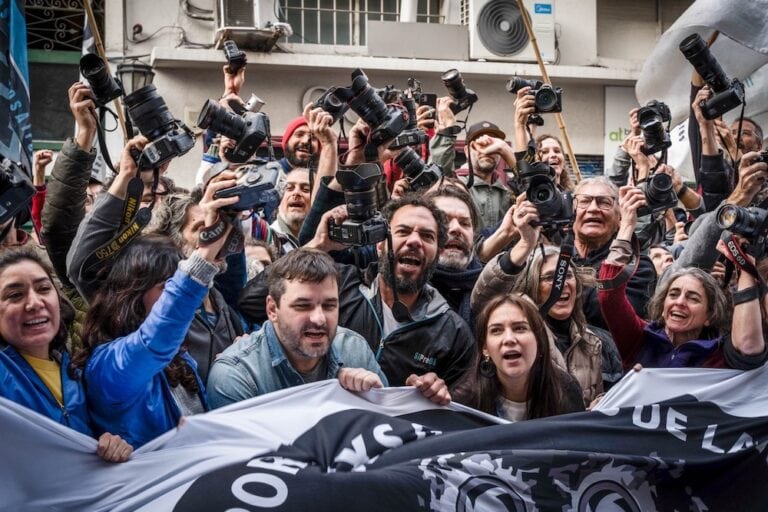The Supreme Court called a hearing in which representatives of the government and of Grupo Clarín will present their arguments concerning the Audiovisual Services Law, which would require the media outlet to rid itself of some of its licenses, within a period of one year.
The Inter American Press Association (IAPA) is closely following the special hearing that has been set for August 28, 2013 by the Argentine Supreme Court concerning the trial between Argentina’s federal government of President Cristina Kirchner in contention with the Grupo Clarín; where it will be required to rule on the constitutionality of some articles from the Audiovisual Services Law regarding news media ownership.
During the last two years, the IAPA has sent international delegations to Argentina on three occasions, having proved serious restrictions to freedom of expression like the application of the media law in effect since its passage in late 2009, and other coercive economic and political measures imposed by the government on news media and independent or critical journalists.
The Supreme Court called a hearing in which representatives of the government and of Grupo Clarín will present their arguments concerning the Audiovisual Services Law, which would require the media outlet to rid itself of its licenses, within a period of one year, when exceeding the limits imposed by the law.
Following the hearing, where “friends of the court” (Amicus Curiae) will be testifying on behalf of the two parties, the Supreme Court will have to pronounce on the constitutionality of Articles 45 and 161, currently suspended by a lower court at the behest of Grupo Clarín and other news media that submitted precautionary measures.
To put the IAPA’s concern into context Claudio Paolillo, chairman of the organization’s Committee on Freedom of the Press and Information, recalled that in reference to the conflict between the government and Grupo Clarín, the IAPA’s most recent mission to Argentina concluded by stating that “what is in play now goes beyond the economic and business interests” of a sector of the press.
Paolillo, editor of the Montevideo, Uruguay, weekly Búsqueda, said that his organization has been condemning the intense campaign of pressure and loss of legitimacy on the part of the government, not only against the press but also against the judges that have intervened in the legal actions on the current media law.
In a resolution at its meeting in Puebla in March, the IAPA criticized the fact that the Argentinean government is placing “different standards when applying the media law; leading to the strong suspicion that both the wording of the law and its application indicate a bias against the independent media, while it maintains a relaxed and permissive attitude towards those close to the official line.”
Paolillo reiterated that the IAPA will remain alert to the results of the court hearing and to any resolution that could affect freedom of the press and of expression in the country.


